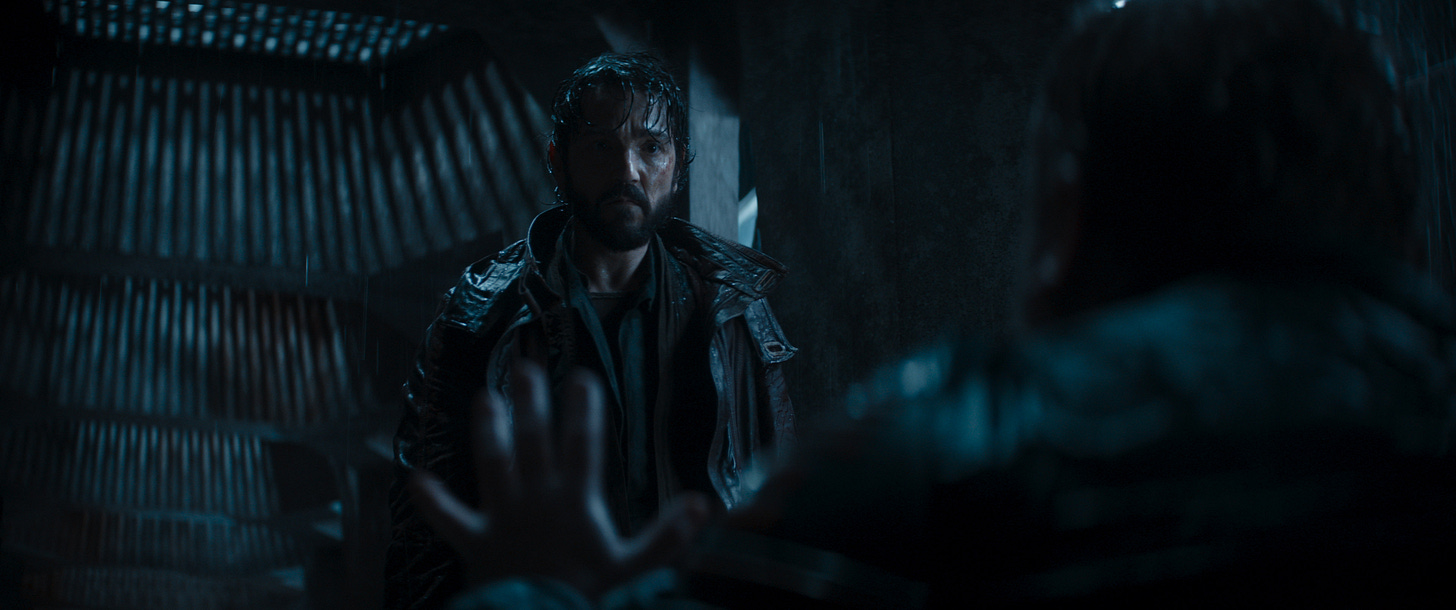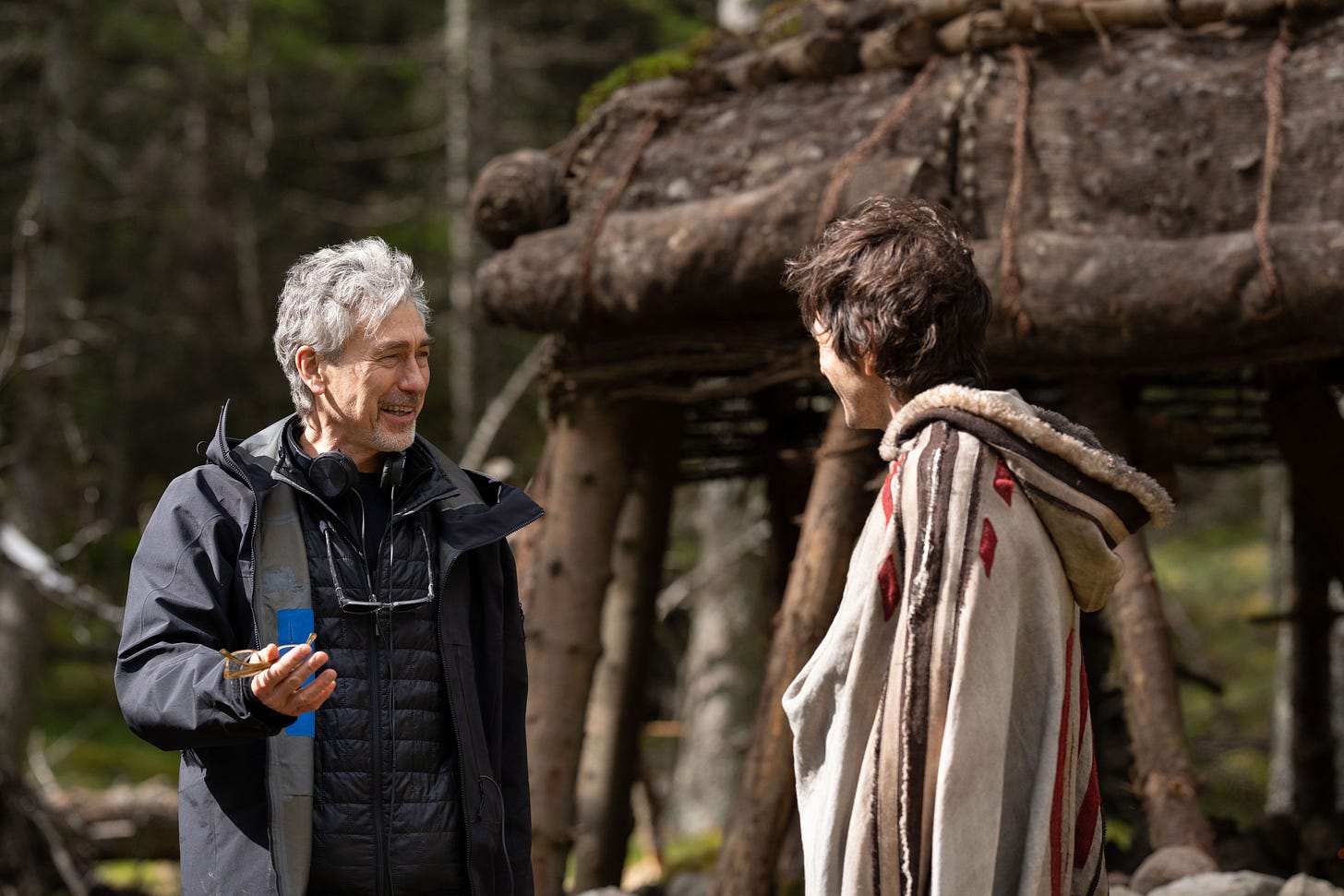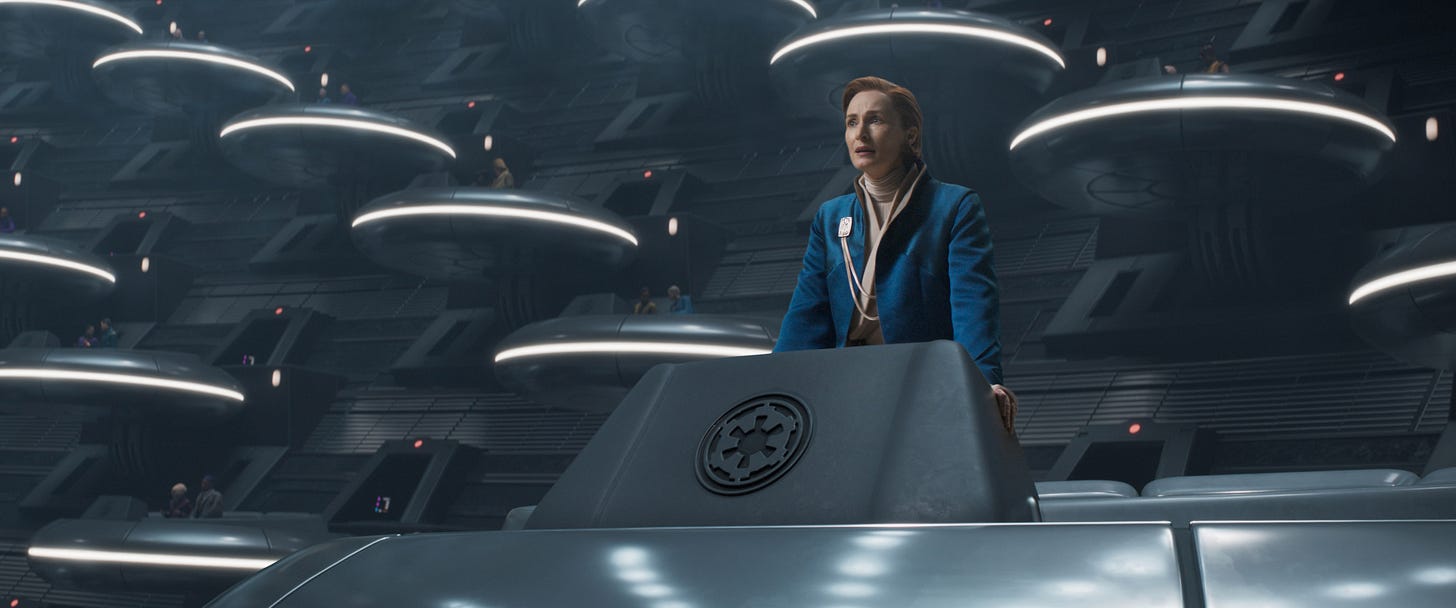Review: Andor's true star is its showrunner
Penned by Tony Gilroy and his team, it is already one of the best written pieces of Star Wars to date
I have a prediction: the three-episode premiere of Andor is going to cause some consternation. A Star Wars property causing unnecessary controversy? OK, that’s not exactly going out on a limb, is it? My suggestion is to block out the noise from those sure to bemoan that not enough happens in the opening trio of episodes. Yes, the storytelling of Andor is incredibly patient, much more than we’re used to from a Star Wars series. But patient storytelling in this case means richer storytelling and that is exactly what is happening with this show. I think there is a strong chance that Andor winds up being the best – and perhaps the most meaningful – of all the Star Wars/Disney+ collaborations. And the reason for that lands at the feet of its showrunner: Tony Gilroy.
Gilroy is known to Star Wars fans as the writer (and later the uncredited director) brought on board in post-production of Rogue One who helped deepen the characters in that film and make that movie easily the best of the post-George Lucas films. Before that he was known as one of the best screenwriters in Hollywood, alternating deftly from tentpole fare like the Bourne series and Armageddon to his brilliant directorial debut Michael Clayton, which earned him multiple Oscar nominations. Gilroy is not an obvious match for Star Wars on the surface. He has confessed openly that he is not a die-hard fan. But perhaps that’s why Gilroy’s writing and Star Wars has been such a winning pairing. Andor at once feels like Star Wars yet somehow totally different and new than the franchise entries that came before it.
The series wouldn’t be out of place on HBO or FX. (Yes, a character even curses!) Part of that comes from exploring one of the darker periods of the Star Wars timeline: the apex of the Empire’s iron fist around the galaxy and the few who dare to stand up to their cruelty. It’s against this backdrop that we find Cassian Andor (Diego Luna, in a star performance), who has history with the Empire and due to some personal trouble he finds himself in, joins up with others who wish to rebel against the regime. This is a spoiler-free review and I will hold to that but just know that the opening 10 minutes of the series immediately sets the tone. It is dark and pulls zero punches.
Gilroy’s writing feels so much deeper than the previous Star Wars live action TV entries. (He pens the opening three episodes and more, with other acclaimed writers like Dan Gilroy and Beau Willimon joining in the fun later in the season.) There is a lot being explored here like the Empire’s occupation of worlds and, therefore, the citizens of those worlds. The oppression of the Empire has never been shown in starker, richer context. You can feel the dreariness through the screen. Without spoiling the context, Andor’s first three episodes feature a flashback to the Empire at their most destructive. In the show’s present timeline, we are shown the inner workings of the organization in ways we never have before. For the history and political geeks amongst the Star Wars fanbase – of which I am one – I found this element of the series incredible and fascinating. There is obviously much more to come, since we only get a small glimpse of Genevieve O’Reilly’s Mon Mothma and her dealings in the Imperial Senate in this first batch of episodes.
With all these platitudes being handed out, I cannot stress enough how deliberate the show’s storytelling is. While I found this enthralling, it did feel jarring at first, particularly at the conclusion of the first episode, which basically just ends with little warning or a tease of what’s to come. Some of the writing on The Mandalorian has been too thin at times for my taste, but one thing Jon Favreau has mastered is the art of the cliffhanger. Almost every episode of that series gives the audience a reason to return the following week. That went double (or triple) for Obi-Wan Kenobi which was only six episodes and therefore had to be set at a breakneck pace. The first four episodes of Andor – which all run around 40 minutes each – eschew typical TV cliffhangers. The action picks up considerably in the third and fourth episode of the show and will obviously continue from there, but I love that Lucasfilm was confident enough in what Gilroy and his team had planned that they didn’t force more plot into the opening episodes.
Visually, the showlookslikeStar Wars. My initial amateur impression after watching the screeners in July was that this show relied a lot less on ILM’s Volume thanMandoandObi-Wan. Gilroy has since confirmed that and, at least so far, that difference is felt. I think the Volume is groundbreaking and has produced truly special visual experiences – especially inMando– but there is something tangible about the settings inAndor’s opening batch of episodes. The show did a wonderful job building off the grimy, dirty aesthetic ofRogue Oneand went even further than that film did.
It is not all perfect. I found the constant focus on Kyle Soller’s Syril to be excessive, even though it’s clear he will have a big part to play going forward. (Soller is great in the role, however.) I am also hoping there is more to the flashbacks we see in the first couple episodes because that thread felt like it could be mined for a lot more story. We also meet an Imperial officer named Dedra Meero (Denise Gough) an episode too late considering her importance to the story. I wish Gilroy found a way to work her into the narrative sooner. (It’s too much of a spoiler to reveal the roles that Stellan Skarsgaard and Fiona Shaw play in the narrative, but their characters – particular Skarsgaard’s – will have big parts to play in Cassian’s journey.)
Since I spent most of this review extolling Gilroy’s contributions, I should end by focusing on the other major figure in the series: Luna himself. It is a credit to him as a performer that he made Cassian such a fan favorite just based off Rogue One. He is absolutely phenomenal in this role. Truthfully, in another actor’s hands, Cassian may even come off as unlikable at times. Luna doesn’t attempt to hide the unsavory parts of the character. He and Gilroy embrace them. This is what makes Andor such a fascinating and special series. We are seeing the rise of a true Rebel from the ashes of the world that the Empire made. I cannot wait to see more.






